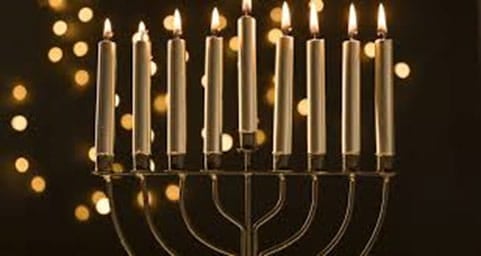As we explore the diversity of holidays in December, we start with Hanukkah! The Jewish festival of lights will be celebrated by many worldwide. The inspiration for the holiday dates back thousands of years in what is today the country of Israel.
The holiday marks the rededication of Jerusalem's Holy Temple during the second century B.C.E. As the story goes, the Maccabees revolted against Greek occupiers and recaptured the temple. The 8-night celebration honors the fight of the Maccabees for religious freedom and Jewish independence in 142 B.C.E. When the group of warriors were victorious, they moved to rededicate their holy temple but had only a small amount of oil to light the menorah. Miraculously, the flame burned for eight full days.
Hanukkah starts on the 25th day of Kislev, the ninth month of the Hebrew calendar. It’s also called the Jewish calendar and tracks religious dates. This calendar follows the lunar cycle, so the holiday begins on a different date each year on the calendar most people use, which is based on the sun’s cycles. In 2023, Hanukkah starts the evening of December 7th and ends on December 15th.
To celebrate the ancient miracle of the oil burning a candle for eight nights, Jews celebrating Hanukkah light a candle holder called a menorah for eight nights. The menorah holds nine candles—one for each night, plus a candle called the shamash used to light the other candles.

Some other fun things people like to do during Hanukkah is cook traditional Hanukkah foods like sufganiyot (deep-fried jelly donuts) and latkes (potato pancakes), hold dreidel tournaments, and listen to Hanukkah music. There are so many ways to celebrate this Jewish holiday!
Happy Hanukkah to those who celebrate!





Leave a Comment